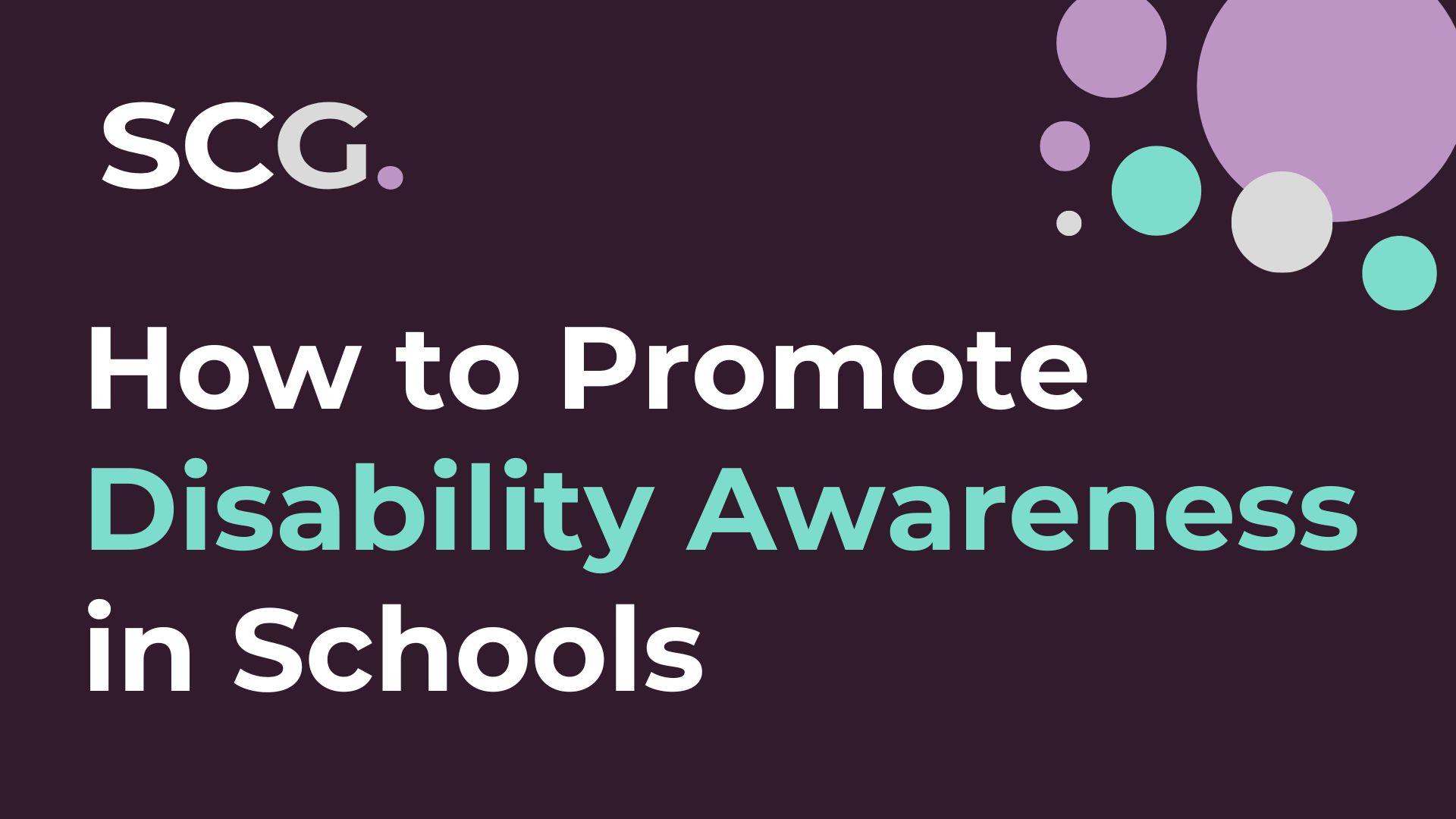
10 Black Educators Who Changed History
02 Oct, 20241-2 minutes
In this blog, you will learn:
- 10 black educators who changed UK history.
- The impact they had on education.
- How to find and apply for the best Education and SEND jobs.
It's Black History Month and it’s a time to reflect and learn from the contributions from impactful people in black communities. In the UK, Black History Month takes place every October and is a time to celebrate, learn about and understand black history and culture.
It’s an opportunity to spotlight and give voice to the achievements of black people who have made significant contributions to the field of education and paved the way for future generations. Black people defied the rules and continued to learn and teach, but their stories and impact haven’t been taught in UK schools.
Recognition of black people who have impacted education and all fields, is crucial. From the first black teacher to authors and professors of black studies, it is important to celebrate all achievements, especially in education.
This blog highlights the achievements of 10 inspiring black icons of education who have had an impact on our history during Black History Month and beyond.
10 Black Icons of Education
Tom Jenkins
Not much is known about Tom Jenkins - even his real name - except that he was the UK’s first ever black school teacher. In 1803, as a young boy, Jenkins sailed off the coast of West Africa to Liverpool. From there he made his way to Hawick in Scotland.
In 1814, when Jenkins was 20, he applied to be the Headmaster in the border village of Teviothead and was even recommended for the role by the high-ranking Heritors (house and/or landowners) of the Parish of Cavers. The Presbytery of Jedburgh (the local congregation) refused him on the grounds of his ‘pagan birth,’ but local supporters wanted Jenkins to teach. Together they opened a rival, independent school in the village Smiddy/Smithy, with Jenkins as a teacher.
From 1814 to 1818, Jenkins taught dozens of children and earned enough money to attend classes at the University of Edinburgh while he taught. His school was so popular that at one point he had 45 pupils, whereas the school that rejected him only had 4.
In 1818, Jenkins travelled to London where he enrolled himself onto a teacher training course with the backing of influential abolitionist Quaker, William Allen.
According to the records from the BFSS Archives, in 1820, Jenkins taught professionally in London, and a year later he went back to Africa. Even on his 3 month journey, he continued to teach, tutoring one of his fellow passengers. Jenkins was sent to Mauritius to teach and then take charge of a Model School.
In January 1823, he took charge of his own school, opening with just six pupils. Although the school was initially viewed with scepticism by the local population, within a few months, it had grown to 131 pupils! Jenkins never returned to England, but continued to teach until his death in 1858.
Not much is known about Tom Jenkins including his real name, date of birth or his origins, but Jenkins was a significant educational figure in the black community, the first of many. Despite his story being virtually unknown, looking back, Jenkins was revolutionary in his attitude to hard work and commitment.
Like the main traits and attitudes of all teachers, Jenkins’ was driven by his passion and enthusiasm for teaching. In 1987, Jenkin’s former school in Scotland was designated as a listed building and a plaque commemorating his career was unveiled in 2003 that can be found on the front of the building.
Be inspiring, like Tom Jenkins.
Gus John
Born in Granada in the Caribbean in 1945, Gus John is a writer, education campaigner, lecturer and researcher. In 1964 age 19, he emigrated to the UK and studied at Oxford where he pursued a career in education.
John engaged with several groups that promoted the development and empowerment of marginalised communities and since the 1960s he has spent his career campaigning against racial discrimination and issues within the education sector.
As an academic, John has worked in multiple universities across the UK, and as his career developed, he contributed heavily to the development of education policies. He was a leading developer of education policy, active in issues of education in Britain’s inner cities. John invested in schooling and education, youth development and the empowerment of marginalised groups within a community. He combined his policy work with community activism.
In 1971, John collaborated on Because They’re Black, a book that won the Martin Luther King Memorial Prize in 1972 for its contribution to racial harmony in Britain.
Since 1977, his focus has been on social policy, youth studies and the role of schooling and education in promoting social justice and became the first black Director of Education and Leisure Services in 1989.
In 2016, he was named as one of 30 of the 'Most Influential African Diaspora Leaders.' As an academic, educationalist and human rights campaigner, John has a deep commitment to life-long learning and has always strived for racial equality and social justice.
Be like Gus John, work hard for education and what you believe in.
Dame Jocelyn Barrow
Born in Trinidad, Dame Jocelyn Barrow trained as a teacher before coming to England in 1959 to pursue an English degree. In the 1960s, she worked as a teacher in primarily deprived areas of London, where she observed huge differences in funding and resources between the middle class mainly white schools, and working class mainly black schools. Looking to correct this inequality, Barrow pioneered multicultural education that stressed the needs of different ethnic groups in the UK. This was the first step in a process that is taken for granted in schools today.
Barrow was the first black woman in teacher training in Britain, and founded the Campaign Against Racial Discrimination (CARD). She was General Secretary and then Vice Chair of CARD from 1964 to 1969. She helped to pave the way for the 1965 Relations Act, which was the first piece of legislation in the UK to address the prohibition of racial discrimination. This was followed by the 1968 Relations Act which for the first time made racial discrimination in housing and employment illegal in Britain.
Barrow was the first black woman to be a governor of the British Broadcasting Corporation (BBC) and was the first patron of the Black Cultural Archives (BCA). In 1972, she was awarded the OBE for work in education and community relations, and was later made DBE (1992) for broadcasting and working with the EU on the Economic and Social Committee, as well as the first patron of the Black Cultural Archives (BCA).
Dame Jocelyn Barrow’s contributions to education and civil rights in the UK have had a lasting impact and paved the way for future generations. She remains an inspirational educational figure particularly to those from Black and minority ethnic backgrounds.
Be the first like Dame Jocelyn Barrow.
Tony O’Connor
Tony O’Connor made history in 1967 as the first ever black Headteacher in the United Kingdom. He was born in Jamaica in the 1920s, and joined the RAF in 1943, during World War II, achieving the rank of flight sergeant and moving to the United Kingdom.
After the war, O’Connor took a teaching diploma at the University of Birmingham, then worked as a teacher and then Deputy Headteacher at Albion School.
In 1967, he was appointed Headteacher at Bearwood Road Junior and Infants School in Smethwick, a town which had recently experienced racial tensions. Soon after the news became public, racist slogans and swastikas were painted on the walls of the school, and threats were made against O’Connor. He was Headteacher for 16 years, a significant milestone considering the racial backlash, daily attacks on his character and years of harassment.
O’Connor was reported as saying that he did not care if he was the "first, second, third or 250th West Indian Headmaster.” He only cared about being a good Headteacher and prioritising children’s education, he wanted to educate children. O’Connor’s efforts to create an inclusive and diverse learning environment for everyone, is testament to his determination, resilience and courage in the face of discrimination.
His appointment as Headteacher paved the way for future generations of black educators in the UK to follow in his footsteps. Just two years after O'Connor was appointed as the first black Headteacher, the first female black Headteacher was announced in the UK.
Be like Tony O’Connor, don’t give up.
Yvonne Conolly
Yvonne Conolly CBE was a Jamaican teacher who became the UK’s first female black Headteacher in 1969, aged just 29-years-old. Conolly spent three years training to be a teacher in Jamaica before she moved to the United Kingdom in 1963.
Conolly worked as a babysitter, cleaner, typist and supply teacher before she found permanent work teaching at George Eliot School in north London. She worked there for six years and progressed to Deputy Headteacher. Against her colleagues’ expectations, Conolly decided to interview for the position of headteacher. Conolly passed the interview to become headteacher for Ring Cross primary school, Islington.
After accepting the job in December 1968, the news that a black woman was being appointed as a Headteacher was met with much controversy and repeated verbal attacks in national newspapers. Conolly faced threats to burn the school down and had to be escorted into the school with a security guard. Throughout her time as Headteacher, Conolly was continuously harassed by the media and the public and received hate mail at her home.
In her role as Headteacher, Conolly was appointed to a multi-ethnic team of inspectors assembled by the Inner London Education Authority in 1978.
After leaving her role as Headteacher, Conolly became an Ofsted Inspector between 1977-1986 and helped schools tackle racism by looking at resources and policymaking. She noticed that there needed to be more change and more representation and opportunities for black teachers.
This encouraged her to set up the Caribbean Teachers Association. The association looks at how to write job applications and perform in interviews, to support black teachers and give them more opportunities to be promoted.
When her Ofsted role ended, Conolly continued being an active voice in the home secretary’s advisory council on race relations. In 2020, she was awarded the 2020 Honorary Fellow of Education Award at The Naz Legacy Foundation and made a CBE for services to education.
Don't just change history, make it, like Yvonne Conolly.
Len Garrison
Len Garrison was an activist, historian and educationalist whose educational contributions continue to inspire future generations. Garrison was born in St Thomas, Jamaica in 1943. In 1952 and 1953, his father and mother migrated to Britain and, in 1954, he joined them in west London. Garrison studied photography at college and became a specialist in medical photography at Guy's hospital.
Garrison was a passionate education advocate dedicated to providing equal opportunities for African and Caribbean children in the UK. In 1971, he took a development studies diploma at Ruskin College, Oxford, and wrote his dissertation on the Rastafarian movement in Jamaica.
In 1976, he graduated in African and Caribbean history at Sussex University and in 1977 he founded African and Caribbean Educational Resource (ACER) after campaigning for two years for funding and resources with the Inner London Education Authority (ILEA).
Garrison noticed that the British education system failed to mention black history or culture, and that a multicultural education resource was required. This led to the creation of the ACER whose aim is to give black children a sense of identity and belonging and to acknowledge their African roots as black British citizens.
Through his work with ACER, he created several programs and education packs for older children and young adults, including the highly successful Young Penmanship awards for creative writing. These awards provided a platform for aspiring black writers and helped launch their careers.
In 1992, Garrison gained an MA in local history at Leicester University and in 1997, the BCA joined with Middlesex University to create the Archive and Museum of Black History. He dedicated his life to cataloguing the development and teaching of Black British history in British schools.
Lead the way like Len Garrison.
Malorie Blackman OBE
Malorie Blackman is best known for being the author of the best-selling young adult Noughts and Crosses series, which explored love, racism and violence. Her books have been discussed and explored at schools in the UK for years to promote discussions about race and prejudice.
Blackman was born in south London, and grew up in Bromley. Her parents were both from Barbados and had come to Britain as part of the "Windrush generation,’ (nearly half a million people migrated from the Caribbean between 1948 and 1970, after facing severe labour shortages in the wake of the Second World War.)
Blackman’s earliest ambition was to become a primary school teacher, and after sixth form she planned to study Drama and English at Goldsmiths. However Blackman’s career teacher told her that ‘black people don’t become teachers’ and refused to write her university reference.
Blackman persevered and decided to apply anyway and was accepted, but deterred and then never went on to study. Instead she decided to become a writer, and over two years, eight or nine books and 82 rejection letters, Blackman persevered!
Blackman has always aimed to make reading accessible and interesting for young people and works with various organisations to encourage reading and literacy in children of all ages. She promotes the enjoyment of short stories, graphic novels and other types of literature.
In 2013, Blackman became the first black person to be awarded the position of Children’s Laureate – initially awarded in the UK once every two years to a ‘writer or illustrator of children’s books to celebrate outstanding achievement in their field.’
Blackman works with various organisations to encourage reading and literacy in children of all ages and continuously advocates for the representation of black children within fiction.
Persevere like Malorie Blackman.
Dr Kehinde Andrews
Kehinde Andrews is a British academic and author specialising in Black Studies born in 1983. He earned a PhD. in Sociology and Cultural Studies from the University of Birmingham in 2011 and wrote his thesis entitled Back to Black: Black Radicalism and the Supplementary School Movement.
Andrews is the first professor of Black Studies in the UK and led the establishment and development of the first Black Studies programme in Europe at Birmingham City University. He is the director of the Centre for Critical Social Research, founder of the Harambee Organisation of Black Unity, and co-chair of the UK Black Studies Association.
Andrews has revived the Harambee Organisation and is opening the Garvey Education Centre named after Jamaican-born Black political activist Marcus Garvey. He has also helped launch the website Make It Plain – a Garvey quote, naturally – “as a space to get black radical thought out in our words”.
His academic position allows Andrews to do the work he needs to do. He uses his profile and platform to appear in the media to discuss issues of race and racism, colonialism, slavery and British nationalism. He has had heated and controversial debates online and on television to address the issues he sees in society and British history.
Be controversial like Kehinde Andrews.
Lavinya Stennett
Lavinya Stennett is a writer, author, education activist and the founder of the Black Curriculum, an organisation that aims to reconstruct the UK’s education system to ensure all children get taught black British history in school.
Stennett was in her third year at SOAS University when she had the idea for the Black Curriculum, an organisation to address the lack of Black British History in the UK education curriculum. Just one year later after she graduated with a BA African Studies and Development, the initiative became a reality.
At just 22, Stennett and the Black Curriculum was at the forefront of conversations about race and education in the UK. As part of the Black Curriculum, Stennett and her team go into schools, do workshops with students, and provide teachers with the resources to introduce more black history into their lessons
Stennett is creating lasting change and helping to bridge the gap in the education system to ensure that all students have access to education that celebrates and recognises the contributions of black people in history. Her mission is to empower the next generation with an inclusive, well-rounded education system in place to influence, impact and educate children.
Shape the future like Lavinya Stennett.
Katharine Birbalsingh
Katharine Birbalsingh was born in 1973 in New Zealand, and grew up in Toronto Canada, before moving to London at the age of 14. Her parents are Indo-Guyanese and Jamaican origin.
Birbalsingh read Philosophy and Modern Languages at the University of Oxford and has always taught in inner London. She is also an author and hosts a blog To Miss with Love where she writes about the education system.
Like Tom Jenkins before her, Birbalsingh founded her own school with herself as Headteacher. She is the founder and Headteacher of Michaela Community School, a free school established in 2014 in Wembley Park, London.
Michaela has been described as the strictest school in Britain, with outstanding scores and reputation. According to the Department for Education, in 2022 their value-added (progress) score at GCSE was the highest for any school in England. In the same year, almost 75% of all GCSEs were graded 9 to 7 (A* to A). 98% of pupils achieved a 4+ (C or above) in both English and Maths, with 99% of all pupils achieving grade 9 to 4 (A* to C) in at least 5 subjects.
Birbalsingh wants the best for poor and black pupils and demands that ethnic minorities be viewed less as victims and given more responsibility and respect. She has been applauded for claiming that the underachievement of black pupils was due partly due to the lack of organisation in classrooms and the accusation of racism against teachers.
Birbalsingh constantly challenges and questions the system for not valuing the education of black and ethnic minority pupils by making them feel culturally excluded.
Be tough like Katharine Birbalsingh.
Without support systems, equal opportunities, and even the law on their side, these black icons of education found a way to not only excel in their craft, but also help others do the same.
Education recruitment
As a specialist education recruitment agency, we’re here to support schools with their staffing needs - whether it be on a temporary, permanent or temp-perm basis.
We’re proud to support black talent into the classroom and we applaud all the trailblazers listed in this article who made it possible for future generations to do the thing which they love - which is to teach!
Searching for permanent or cover staff? Get in contact with our specialist education recruitment consultant, Jamie Heath on 01772 954200 now.
Teaching jobs
Searching for your next teaching job? Browse our current job listings or upload your CV now to be contacted about upcoming teaching career opportunities. CV not up to date? Check out our tips
to prepare your CV for a teaching job in our recent guide.
Meet Jamie Heath
Who is Spencer Clarke Group?
Since 2017, we’ve been innovating the recruitment industry and affecting positive and profound change. For us, it isn’t just about perfectly matching candidates and clients, but enhancing the recruitment experience.
We operate in two sectors:
In eleven specialisms:
Healthcare, Social Care & Nursing
Corporate Functions & Business Support
Planning, Development & Regeneration
Highways, Infrastructure & Engineering
If you’re struggling to fill a role, why don’t you contact us on 01772 954200 to see how we can help? One of our consultants will be happy to listen to the challenges which you are facing and advise on the best possible solution for you.
If you’re searching for a new role, why not visit our job page to take a look at the latest opportunities? Alternatively, upload your CV and one of our experienced consultants will contact you when a relevant opportunity becomes available.
If you’re struggling to fill a role, why don’t you give us a call on 01772 954200 to see how we can help? One of our consultants will be happy to listen to the challenges which you are facing and advise on the best possible solution for you.



